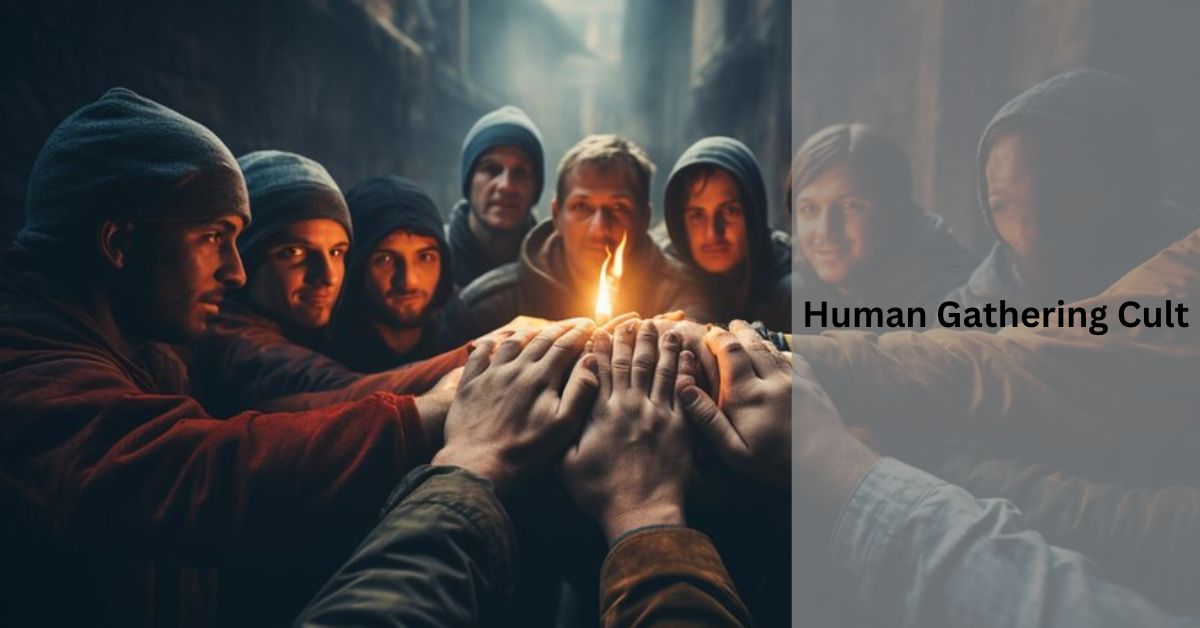Human Gathering Cult – Explore More In Detail!
Human gathering cults, often known as cults, have long been a subject of fascination and controversy due to their unconventional beliefs and practices.
Cults are groups centred around a charismatic leader or ideology that deviates from societal norms, but not all are harmful; some provide a sense of community and purpose. These leaders may claim special knowledge or authority
Exploring the world of cults unveils a complex tapestry of beliefs, human psychology, and the eternal quest for meaning and belonging.
Defining Human Gathering Cults – Discover More!
Human gathering cults, often simply referred to as cults, are groups that center around a charismatic leader, a distinct belief system, or a set of practices that diverge from mainstream societal norms.
While the term “cult” is often associated with negative connotations, it is crucial to approach the subject with a nuanced understanding, recognizing that not all cults are harmful or destructive.
Cults often form around a charismatic leader who possesses a magnetic personality and exerts a strong influence over their followers. These leaders may claim special knowledge or authority, which they use to attract and retain members.
Cults may also be characterized by a distinct belief system or ideology that sets them apart from mainstream society. This belief system often serves as the foundation for the group’s identity and practices.
While some cults may engage in harmful or destructive behaviors, such as manipulation, abuse, or isolation, others may be relatively benign.
Some cults provide a sense of community, belonging, and purpose to their members, offering support and guidance in their lives.
Characteristics of Human Gathering Cults – Stay Informed!

The presence of charismatic leadership is a common trait among cults. Charismatic leaders possess the ability to inspire and influence their followers, often through their charisma, confidence, and persuasive communication skills.
Visionary Leaders:
Cult leaders are often perceived as visionary figures who possess unique insights or connections to higher powers. This perceived special status makes them highly appealing and influential to their followers, who may view them as divine or enlightened beings.
Distinct Belief System:
Cults typically adhere to a distinct belief system or ideology that sets them apart from mainstream society. This belief system serves as the foundation for the group’s identity and cohesion, providing a sense of purpose and meaning to its members.
Adherence to Beliefs:
Members of cults are usually expected to adhere strictly to the group’s beliefs and practices. Questioning or deviating from these beliefs may result in ostracism or punishment, reinforcing conformity within the group.
Group Dynamics:
Group dynamics within cults play a crucial role in fostering a sense of community and belonging among members. Rituals, shared experiences, and communal living arrangements are common practices that strengthen the bonds between members and reinforce the group’s identity.
Isolation:
Cults often isolate their members from outside influences, controlling their access to information and limiting their contact with non-members. This isolation serves to reinforce the group’s beliefs and ideology, making it difficult for members to question or challenge the leadership.
Solidarity and Loyalty:
The combination of a charismatic leader, a distinct belief system, and strong group dynamics can create a strong sense of solidarity and loyalty among cult members. This can make it challenging for individuals to leave the group, as they may fear losing the community and identity they have formed within the cult.
Read: Codigo De Barras Perfume – Fragrance experience!
Psychological Dynamics of Cult Membership – Get Involved!

Individuals are drawn to cults for a variety of reasons, often rooted in the deep-seated human need for belonging, meaning, and spiritual fulfillment.
Cults offer a sense of community and purpose that may be lacking in an individual’s life, providing a supportive environment where members feel understood and accepted.
Once inside a human gathering cult, members may experience psychological manipulation and coercion that can lead to a sense of dependency on the group and its leader.
human gathering cult leaders often use tactics such as love bombing, isolation, and control of information to exert influence over their followers. This manipulation can be subtle and gradual, making it difficult for members to recognize or resist.
As members become more deeply involved in the cult, their sense of identity and self-worth may become increasingly tied to the group.
This can create a powerful psychological bond that is difficult to break, even in the face of mounting evidence of harm or wrongdoing within the cult.
The sense of belonging and purpose that cults provide can be incredibly appealing, especially to individuals who are searching for meaning or struggling with feelings of alienation.
However, it is important forhuman gathering cult individuals to be aware of the potential risks of involvement in cults and to approach any group that demands unquestioning loyalty or secrecy with caution.
The Evolution of Cults In The Digital Age – Take Action!

The advent of the internet and social media has indeed transformed the way cults operate, opening up new avenues for recruitment, communication, and organization.
These digital technologies have allowed cults to reach a global audience and connect with individuals who may never have been exposed to their teachings or practices otherwise.
One of the key ways in which the internet has impacted cults is through the ease of recruitment. Cults can now use social media platforms, websites, and online forums to spread their message and attract new members.
These human gathering cult platforms allow cults to target specific demographics, engage with potential recruits, and disseminate their ideology widely.
In addition to recruitment, the internet has also facilitated the formation of virtual cults, where members interact and engage solely through digital platforms.
These virtual cults may not have a physical presence and instead exist entirely online. Members of virtual cults may participate in online rituals, discussions, and activities, forming a sense of community and belonging in the digital realm.
The rise of virtual human gathering cults highlights the evolving nature of cults in the digital age. These groups can operate with a level of anonymity and reach that was previously unimaginable, making them potentially more widespread and influential than traditional cults.
However, while the internet has provided new opportunities for cults to expand their reach, it has also brought new challenges.
human gathering Cults may now face increased scrutiny and criticism from online communities, as well as challenges in maintaining control over their members in the digital space.
Additionally, the spread of misinformation and manipulation online can make it difficult for individuals to discern the truth and make informed decisions about joining a cult.
The Impact of Cults on Society – Learn More!

The impact of cults on individuals and families can be profound and long-lasting. While some cults may appear benign or even beneficial to their members, others have been associated with harmful practices that can have devastating effects.
One of the most concerning aspects of cults is the potential for exploitation and abuse. In some cases, charismatic leaders manipulate and control their followers, exploiting them for financial gain, labor, or sexual purposes.
This manipulation can lead to psychological trauma, as individuals may feel trapped or powerless to leave the cult.
human gathering Cults can also have a detrimental impact on relationships within families. When a family member joins a cult, it can cause strain and division within the family unit.
The human gathering cult member may become isolated from their loved ones, leading to feelings of alienation and abandonment. Families may struggle to understand or communicate with the cult member, further exacerbating the rift.
Psychological trauma is another common outcome of involvement in a cult. Cult members may experience cognitive dissonance, as their beliefs and experiences within the cult conflict with their previous beliefs or societal norms.
This can lead to feelings of confusion, guilt, and shame. In some cases, former cult members may require therapy or counseling to process their experiences and regain a sense of identity and agency.
Read: Essential Investment Strategies for Financial Growth
Conclusion
Human gathering cults represent a complex and multifaceted phenomenon that continues to intrigue and perplex scholars, psychologists, and sociologists alike.
FAQ’s:
1. Why are individuals drawn to cults?
Individuals may be drawn to cults for a variety of reasons, including a desire for belonging, meaning, or spiritual fulfillment. Cults offer a sense of community and purpose that may be lacking in an individual’s life, providing a supportive environment where members feel understood and accepted.
2. How do cults use manipulation and coercion?
Cults may use tactics such as love bombing, isolation, and control of information to manipulate and coerce their members. This manipulation can be subtle and gradual, making it difficult for members to recognize or resist.
3. What impact can cults have on individuals and families?
Cults can have a profound impact on individuals and families, leading to strained relationships, psychological trauma, and feelings of alienation and abandonment. Cults may also exploit their members for financial gain, labor, or sexual purposes, leading to exploitation and abuse.
Read more:







